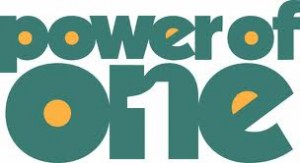 Note: This is the third installment in a four-part series of blog posts; you’ll find part one here, and part two here.
Note: This is the third installment in a four-part series of blog posts; you’ll find part one here, and part two here.
Popular media most frequently depict lawyers in an advocate role. Specifically, the media shows a lawyer parading in front of a jury, pounding on a lectern and giving a grand oratory performance. These, incidentally, are things that appealed to me about being a lawyer. I like theater, and I like competition.
I started my law firm clerkship with a bang with all the theatre and gamesmanship I could have wanted. In the summer of 1999, I participated daily in a six-week jury trial that led to a $100 million verdict. We were thrilled because the jury assigned no liability to our client, a third-party defendant. The plaintiff, of course, was ecstatic. I found the experience thrilling. More so, because I hadn’t been part of the three years leading up to that six weeks. And I didn’t play much of a role in the years of appellate proceedings that followed. The pace of litigation takes years to learn, and a good while longer to figure out how to explain to a client.
But even at that nubile stage I could see that a trial “victory” comes at great expense. The plaintiff-municipality had incurred enormous costs, not the least of which was diversion from present endeavors, that redressing the past requires. And our client, while clearly a winner at trial, had incurred heavy costs as well. The longer I practiced the more I learned that most civil cases boast no definitive victor. More than 90% of cases settle before trial, typically requiring compromise on all sides. Because of all the incentives to resolution, the rare case that doesn’t settle often has circumstances suggesting blame cannot be assigned so neatly.
The criminal realm is not so different. Ninety-plus percent of criminal cases are resolved by plea bargaining. The media portraits of the defense lawyer sweeping in and “getting the defendant off” or the prosecutor triumphantly “putting the bad guy away” after a hard-fought jury trial, are largely caricatures.
Thus, contrary to popular belief, nearly every lawyer’s role as advocate lies mostly outside of trial proceedings. Unfortunately, while the trial has fallen into disuse (without going into why, or whether that’s a good thing), theater and competition persist.
There is no place for theatre in advocacy. The hurt, pain or problem causing someone to seek legal redress, furnishes drama enough. Nor is advocacy a game, and any lawyer who perceives it so cavalierly ought not be one. The responsibility of speaking on behalf of another person is sobering. In this lawyer’s experience, it is far easier to advocate for a cause or theory – even an unpopular one – than a person or group of people. Unlike theories, people are frighteningly complex. It is a deeply personal matter to ask someone to speak for you, and it is a deeply personal matter to undertake the work.
Herein lies the Power of One as advocate, which I understood most acutely when hiring a lawyer for myself, four years ago. I believe in marriage and strive to keep my word. I never thought I would divorce; really, who does? Yet there I found myself, broken and bereft and just trying to stay collected, in Karen Zimmerman’s office. I remember her telling me, as any good lawyer would have, “you know, kiddo, you could do this paperwork yourself.” The reality was that I needed a champion because I couldn’t be one for myself just then. My divorce, while fairly routine from a legal perspective, was not ordinary to me. Karen and her staff treated me respectfully, and with patience. Most importantly, Karen spoke on my behalf at a time when sorrow had silenced me.
No matter the practice, all lawyers take on the grave responsibility of speaking for someone other than themselves. The clients who seek an estate plan need us to articulate in legal terms what they feel in their hearts. The multimillion dollar corporation our firm represents is, after all, made up of human beings who depend on us to speak for the company. The criminal defendant who stole for drugs, one amongst a pile of 300 files that year, risked his life for his country not so long ago.
As a legal advocate for others, I can tell you it is profoundly satisfying to serve someone well in this way. Sometimes we know the footprint our work has left on someone’s life; often, we don’t. We ought merely to be grateful for the opportunity, and mindful of the tracks we lay down.
